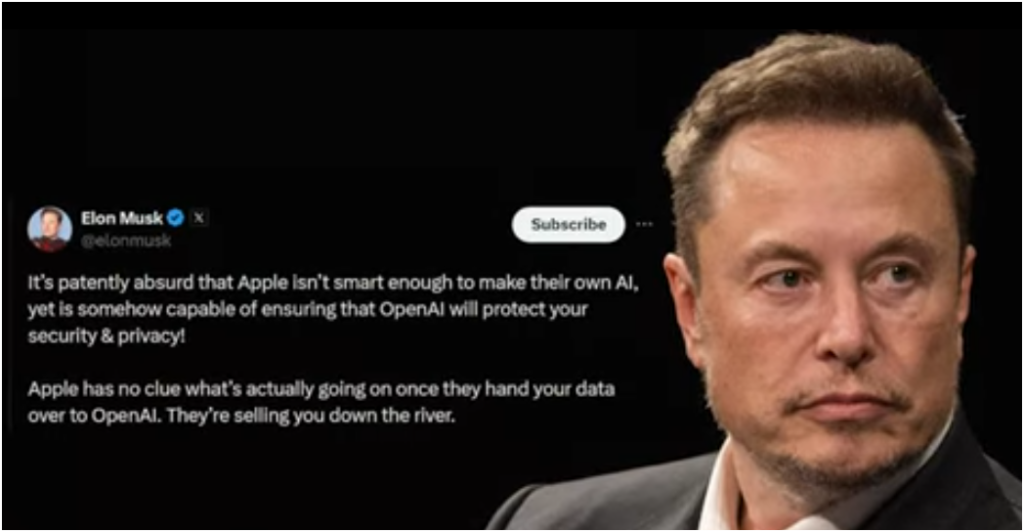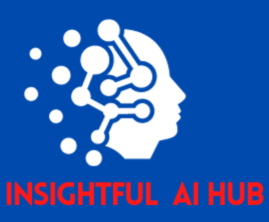
In a surprising turn, Elon Musk, the CEO of Tesla and SpaceX, has issued a stark warning to Apple. He has threatened to ban Apple devices from his companies if Apple proceeds with integrating OpenAI’s technology at the operating system level. Musk deems this integration an “unacceptable security violation,” raising concerns about user data privacy and security. This announcement has sent ripples through the tech industry, highlighting the escalating tension between some of the world’s most influential tech giants.
Introduction
In a world where tech giants often find themselves in cooperation, it’s not every day that a leading figure like Elon Musk takes a firm stand against another behemoth in the industry. Recently, Musk has put Apple in his crosshairs, threatening to ban Apple devices from Tesla and SpaceX operations if the company integrates OpenAI’s technology into its operating systems. Musk’s stance underscores his unwavering commitment to user data privacy and security, sparking a heated debate on the potential implications of this technological integration.
The Core of the Controversy
Apple’s Partnership with OpenAI
Apple recently announced a groundbreaking partnership with OpenAI to integrate ChatGPT, a sophisticated AI language model, into its operating systems. This integration aims to enhance user experience by providing advanced AI-driven functionalities across Apple’s devices. However, this ambitious move has not been universally welcomed.
Musk’s Security Concerns
Elon Musk, a vocal advocate for AI safety, has expressed significant concerns over this integration. According to a report by CNBC, Musk believes that embedding OpenAI’s technology at the OS level poses serious risks to user data privacy and security. He has gone so far as to label it an “unacceptable security violation,” asserting that such integration could lead to unprecedented access to sensitive user information.
Implications for Tesla and SpaceX
Operational Impact
If Musk follows through on his threat, the implications for Tesla and SpaceX could be substantial. Apple devices, particularly iPhones and iPads, are widely used across both companies for various operational purposes. Banning these devices would necessitate a significant overhaul of the current tech infrastructure within these organizations.
Employee Adjustment
Employees at Tesla and SpaceX, many of whom rely on Apple products for daily tasks, would need to transition to alternative devices. This transition could be disruptive and require extensive training and support to ensure a smooth shift to new hardware and software ecosystems.
Industry Reactions
Tech Community Response
The tech community has been abuzz with reactions to Musk’s bold stance. Industry experts and analysts are divided on the issue. Some, like those at iMore, support Musk’s concerns, emphasizing the need for stringent data privacy measures in the age of AI. Others argue that Musk’s response might be an overreaction, potentially stifling innovation.
Market Speculations
The potential ban has also led to market speculations about the future dynamics between these tech giants. According to Benzinga, investors are closely monitoring the situation, as any substantial action could affect the stock prices and market positions of both Apple and Tesla.
Musk’s Perspective on AI Integration
Elon Musk’s apprehensions about AI are well-documented. He has repeatedly warned about the potential dangers of unchecked AI development and has called for robust regulatory frameworks to ensure AI safety. His latest stance against Apple is a continuation of his broader advocacy for responsible AI usage and data protection.
Historical Context
Musk’s concerns are not new. He co-founded OpenAI with the mission to ensure that artificial general intelligence (AGI) benefits all of humanity. However, he parted ways with the organization over disagreements on its direction and safety measures. His current objection to Apple’s integration of OpenAI’s technology is consistent with his long-standing cautionary stance on AI.
What This Means for the Future
User Data Privacy
Musk’s threat has reignited the conversation about user data privacy in the digital age. As AI technologies become more integrated into our daily lives, ensuring that these advancements do not compromise user security is paramount. This situation highlights the need for clear policies and regulations that safeguard user information while fostering technological innovation.
Corporate Technology Policies
Companies might reconsider their technology policies and partnerships in light of potential security risks. The discourse initiated by Musk could lead to more rigorous evaluations of AI technologies and their implications for user privacy within corporate environments.
Conclusion: The Broader Implications
Elon Musk’s bold threat to ban Apple devices from Tesla and SpaceX is more than just a reaction to a corporate partnership; it is a statement about the broader issues of AI safety and data privacy. As we navigate the rapidly evolving landscape of AI integration, the concerns raised by industry leaders like Musk serve as critical checkpoints. They remind us that while innovation drives progress, it must be balanced with robust safeguards to protect user interests.
The unfolding saga between Elon Musk and Apple will undoubtedly continue to captivate the tech world. It serves as a potent reminder of the complexities and responsibilities that come with technological advancements. As stakeholders in the digital future, it is crucial to remain informed and engaged in these discussions, ensuring that the path we pave with AI prioritizes safety, privacy, and ethical considerations.
For more insights and updates on this developing story, you can follow the detailed coverage on CNBC, iMore, Benzinga, and Forbes. Stay tuned as we continue to monitor this evolving narrative and its impact on the tech industry.






